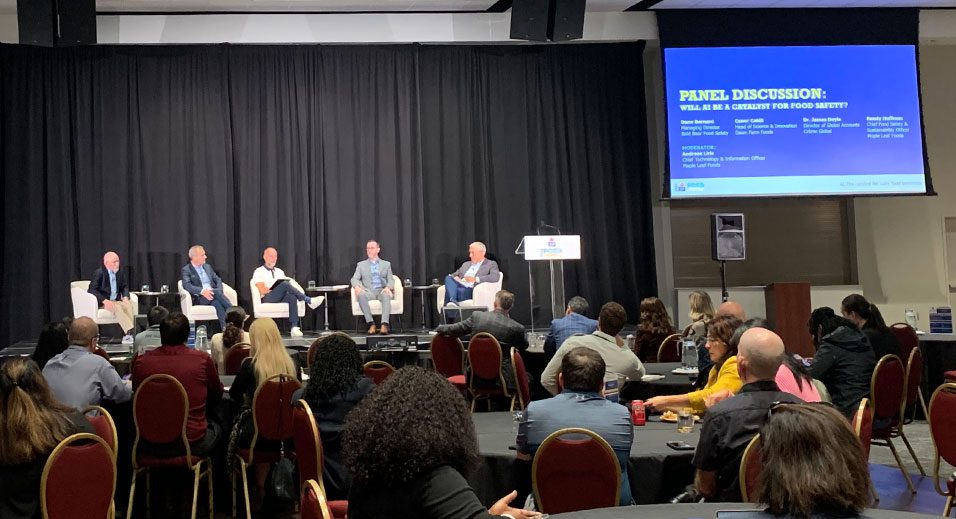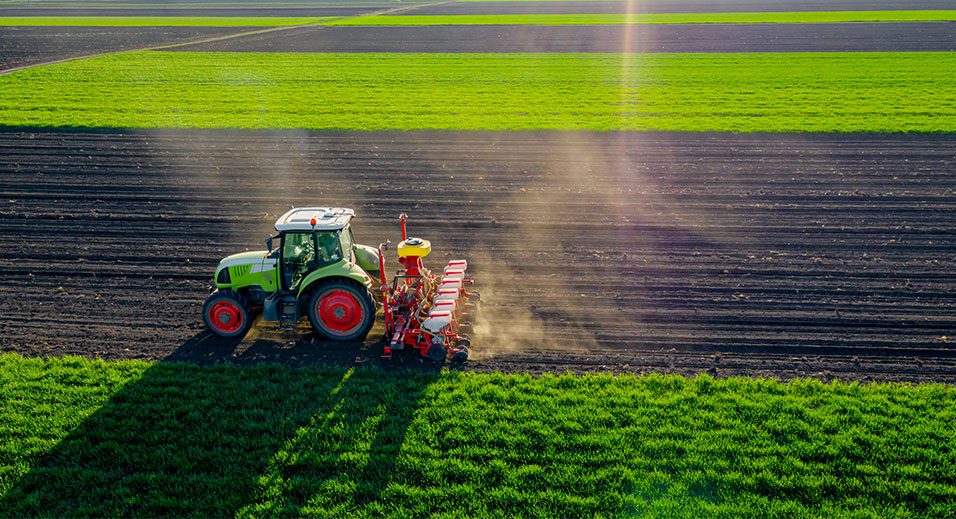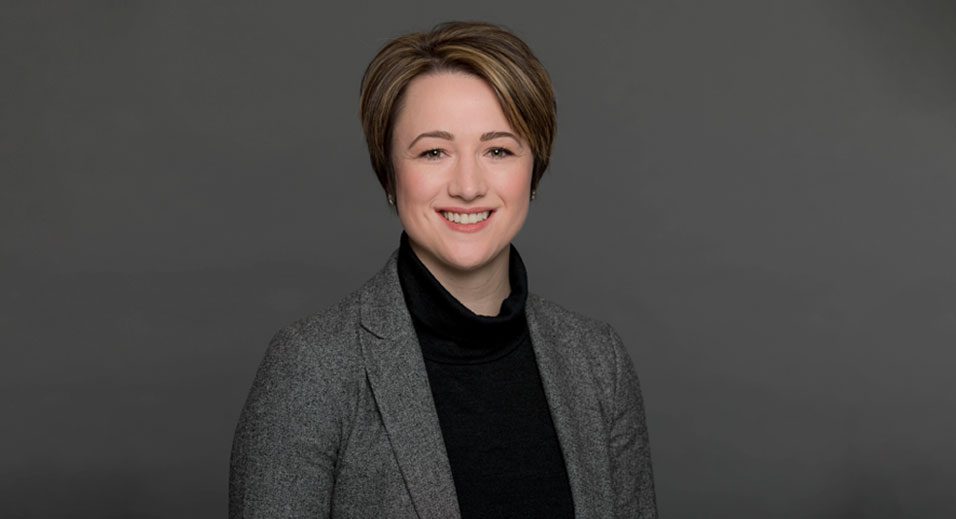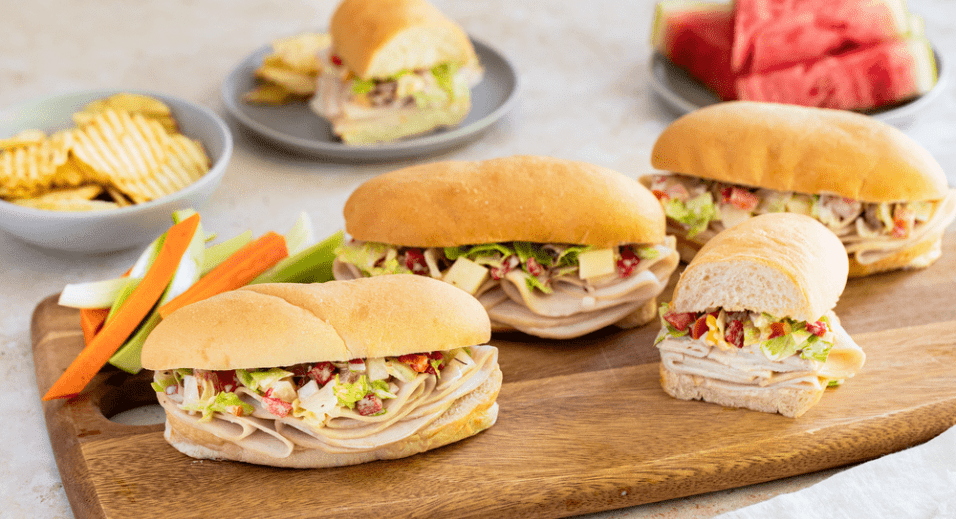We joined together with industry experts to discuss how artificial intelligence can be an innovative catalyst for safer food.
By Randy Huffman, Chief Food Safety and Sustainability Officer
On October 22, we hosted our 14th annual Food Safety Symposium as our continued commitment to providing safe food for all Canadians. It was an excellent day of knowledge sharing among experts within the food industry and I was delighted to see the turnout of invigorated guests.
The theme of our symposium this year was AI: The catalyst for safer food tomorrow and we heard from industry leaders and experts who discussed the transformative role of Artificial Intelligence (AI) in advancing food safety.
Did you know that at Maple Leaf Foods, we’ve made six Commitments to our planet, animals, and people? Two of those commitments are to our food — we commit to providing Safe Food and Good Food, and we really mean it when we say it! This is why our annual Food Safety Symposium is such an important part of our culture. Here’s what was covered in the day’s events.
Exploring the evolution of AI in the food industry
It was an honour to kick off the day with some introductions emphasizing our immense commitment to producing safe food every day, and to share our learnings with one another. I then passed the microphone to my colleague Andreas Liris, Chief Technology and Information Officer.
Andreas touched on one of our eight Leadership Values as it relates to AI: “We approach AI with intense curiosity, understanding both its possibilities and limitations. AI is bringing new opportunities into our business, from yield improvement to virtual assistants, and it’s crucial to understand what it can do for us. The promise of AI is great, but we need to invest wisely and leverage the right technologies to enhance our food safety standards and drive long-term growth,” said Andreas.
I was happy to welcome Curtis Frank, our President and CEO, who echoed these sentiments. “AI and food safety are deeply intertwined, with AI transforming our business in ways we are only beginning to understand,” said Curtis. “Our deep commitment to food safety is rooted in our past and in our everyday promises in how we hold ourselves accountable and continue to set the highest standards. It’s not just one department — it’s everyone’s responsibility. We must continuously advance our efforts to deliver safe, nutritious food and use AI to build a safer, more sustainable food system.”
This year, we were delighted to welcome Keynote Speaker, Nihar Dalmia, Partner, Omnia AI at Deloitte. Nihar spoke about the evolution of AI, emphasizing the pivotal moment we’re at with AI in the food industry. He emphasized that we’re really on the cusp of an AI revolution: “We’ve moved from AI being tools for scientists and large corporations to now being for all of us. It’s critical to understand the potential of AI and how to drive tangible business value,” said Nihar. “Looking ahead, we see trends like smart packaging, AI-powered robotics, and personalized food safety solutions shaping the industry. What comes next, as organizations scale AI initiatives, is navigating the technological change and enabling AI agents to shape organizations with comprehensive, responsible AI practices.”
Entrepreneurs pitch innovations for Food Safety Dragon’s Den
Our first panel discussion of the day titled From Theory to Practice: AI’s Impact on Food Safety featured Conor Cahil, Head of Science & Innovation at Dawn Farms Foods and Dr. James Doyle, Director of Global Accounts at Crème Global. They led an invigorating conversation which highlighted the importance of precise data acquisition, optimizing processes, and how AI enhances long-term sustainability and consumer safety.
Conor presented case study examples from Dawn Farms Foods’ forensic approach to food safety that uses AI to enhance labelling controls, quality monitoring, intuitive training, and predictive detection upgrades. His ultimate advice for the day when it comes to AI technology was to, “Think big and start small. Do the groundwork and go from there.”
I was especially excited for the Food Safety Dragons’ Den session hosted by my colleague Spir Marinakis, VP, Food Safety, Quality, Technical Services & Sanitation. Three entrepreneurs got to share how their entrepreneurial technology firms are developing innovative food safety solutions using AI. Our inquisitive panel of “Dragons” featured Dane Bernard, Managing Director of Bold Bear Food Safety, and Milos Dobranic, our own Vice President, Information Solutions – Analytics & Innovation.
The first entrepreneur was Olga Pawluczyk, Co-Founder & CEO of P&P Optica, who pitched her company which houses automated quality and safety inspection technology that detects foreign materials using hyperspectral imaging. It can see objects with 90-95% accuracy and pick up any missed foreign materials, such as wood, plastics, and in one case, even found a candy wrapper in the production of a meat product.
Harjeet Bajaj, President & CEO of Savormetrics, introduced Dr. SAM! Using the power of artificial intelligence, the Dr. SAM Quality Chatbot mimics the human intelligence system. It utilizes data analytics to help predict food recalls and provide best practices for dealing with outbreaks.
Finally, Lone Jespersen, Ph.D., Principal and Founder of Cultivate SA, explained how her company uses AI advancements to eradicate foodborne illnesses. She shared some interesting statistics: 43% of frontline workers rarely receive coaching and 37% do not follow food safety rules. That’s why their system called Pulse is such a gamechanger. “Pulse connects leaders with frontline workers based on data collected from the frontline team,” said Lone. “We’ve seen an 11% improvement in frontline team engagement and 17% in supervisory engagement.”
Looking to the future of AI for food manufacturing
In our closing session, I sat down to join the Panel Discussion: Will AI Be a Catalyst for Food Safety, rounding up key speakers for the day including Dane Bernard, Conor Cahil, and Dr. James Doyle, moderated by Andreas Liris.
Much in line with our discussions throughout the day, Dane advised that when it comes to AI, we should start small and start with targets. “We don’t need AI to solve everything. If you don’t have a problem, don’t try to solve it with AI. You have to focus on AI, find the value it brings, and then you can find other uses for it.”
The panel also discussed how we could develop more trust in AI, which has the tendency to sometimes produce biases and hallucinations. James advised building in safeguards that will challenge it along the way. And we touched on what businesses could do to ensure more accurate data for precision in processes.
It was an excellent day of learnings and takeaways and really emphasized the need for businesses to integrate AI responsibly while harnessing its full potential to revolutionize food safety practices.
By continuing to adapt, exchange best practices, and maintain our commitment to caring for both our people and the planet, the future of the food industry looks bright.



